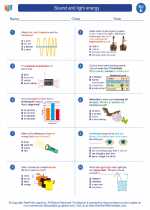Sound and light energy -> homeostasis
Homeostasis
Definition: Homeostasis is the ability of an organism to maintain stable internal conditions despite external changes. It involves a series of processes that help regulate and maintain the internal environment of the body within narrow limits, allowing cells to function optimally.
Mechanisms of Homeostasis:
- Temperature Regulation: The body maintains a stable internal temperature through processes such as sweating, shivering, and vasodilation or vasoconstriction of blood vessels.
- Fluid Balance: Homeostasis ensures that the body maintains a proper balance of fluids and electrolytes through processes such as urination, thirst, and hormone regulation.
- Blood Sugar Regulation: The body regulates blood sugar levels through the actions of insulin and glucagon, which help maintain stable glucose levels in the bloodstream.
- pH Balance: Homeostasis involves regulating the body's pH levels to ensure that it stays within a narrow range, typically around 7.4, through processes such as breathing, kidney function, and buffer systems.
- Regulation of Blood Pressure: Homeostasis maintains stable blood pressure through processes such as vasoconstriction or vasodilation, as well as through the actions of hormones like aldosterone and antidiuretic hormone.
Importance of Homeostasis:
Homeostasis is crucial for the survival of organisms as it ensures that cells can function properly and efficiently. Without homeostasis, the body would be unable to maintain essential functions such as nutrient uptake, waste elimination, and the overall stability of internal conditions necessary for life.
Study Guide:
- Define homeostasis and explain why it is important for organisms.
- Describe at least three mechanisms through which the body maintains homeostasis.
- Explain how the body regulates temperature and blood sugar levels to maintain homeostasis.
- Discuss the role of hormones in the regulation of homeostasis.
- Provide examples of how disruptions in homeostasis can lead to health issues or diseases.
Understanding homeostasis is essential for comprehending how living organisms maintain internal stability and respond to external changes. It also provides insights into the interconnected systems and processes that ensure the survival and well-being of living organisms.
[Homeostasis] Related Worksheets and Study Guides:
.◂Science Worksheets and Study Guides Fifth Grade. Sound and light energy

 Activity Lesson
Activity Lesson
 Worksheet/Answer key
Worksheet/Answer key
 Worksheet/Answer key
Worksheet/Answer key
 Worksheet/Answer key
Worksheet/Answer key
 Worksheet/Answer key
Worksheet/Answer key
 Vocabulary/Answer key
Vocabulary/Answer key
 Vocabulary/Answer key
Vocabulary/Answer key
